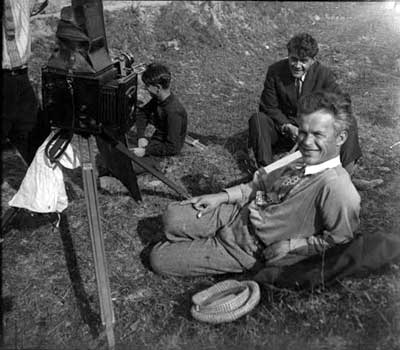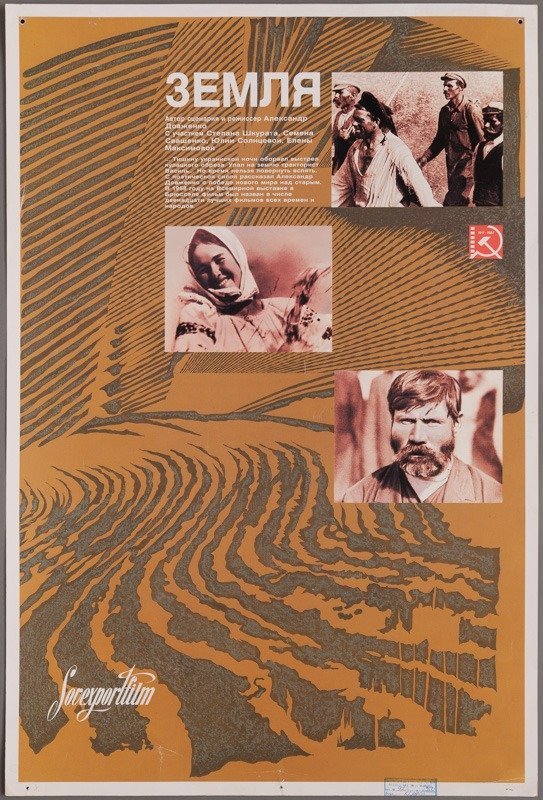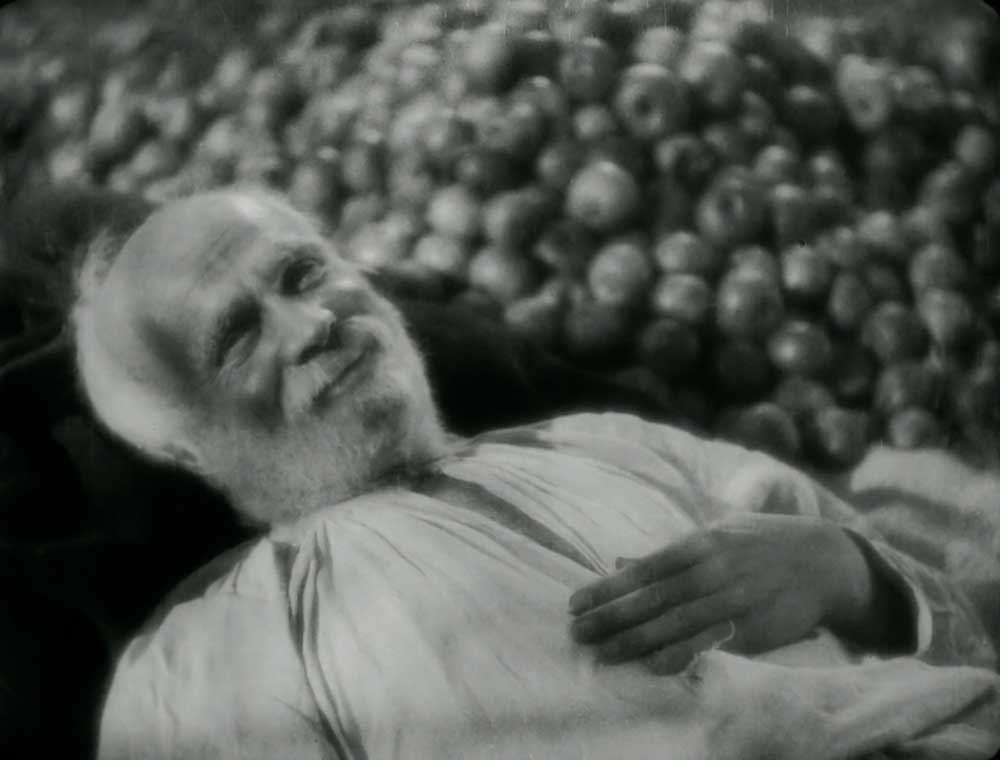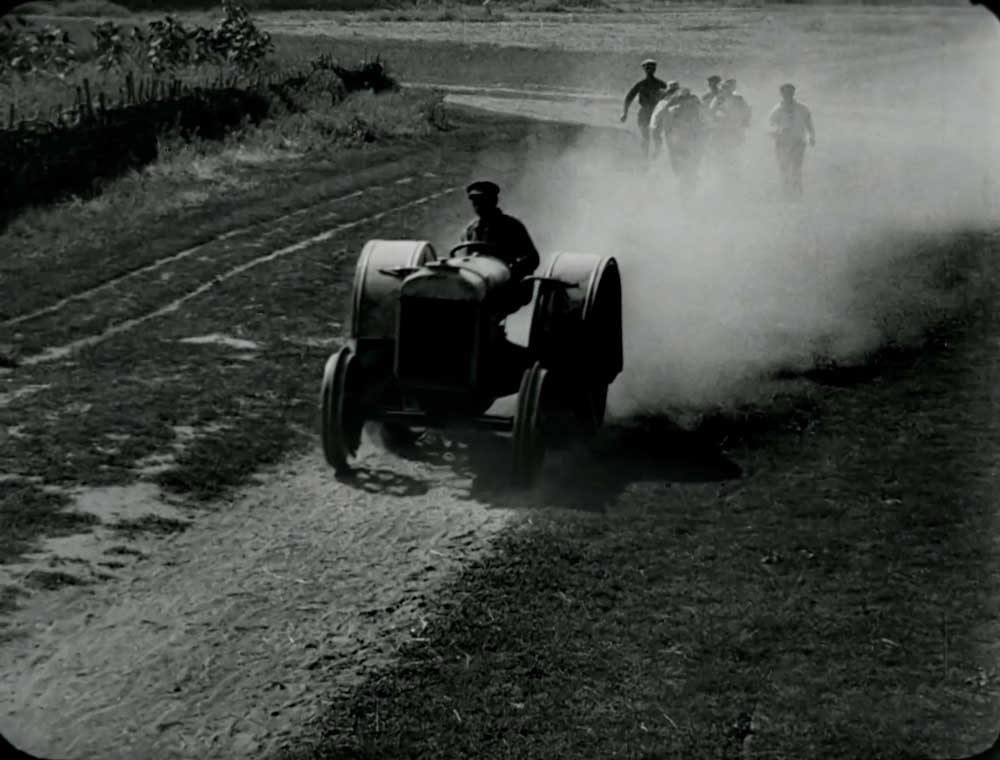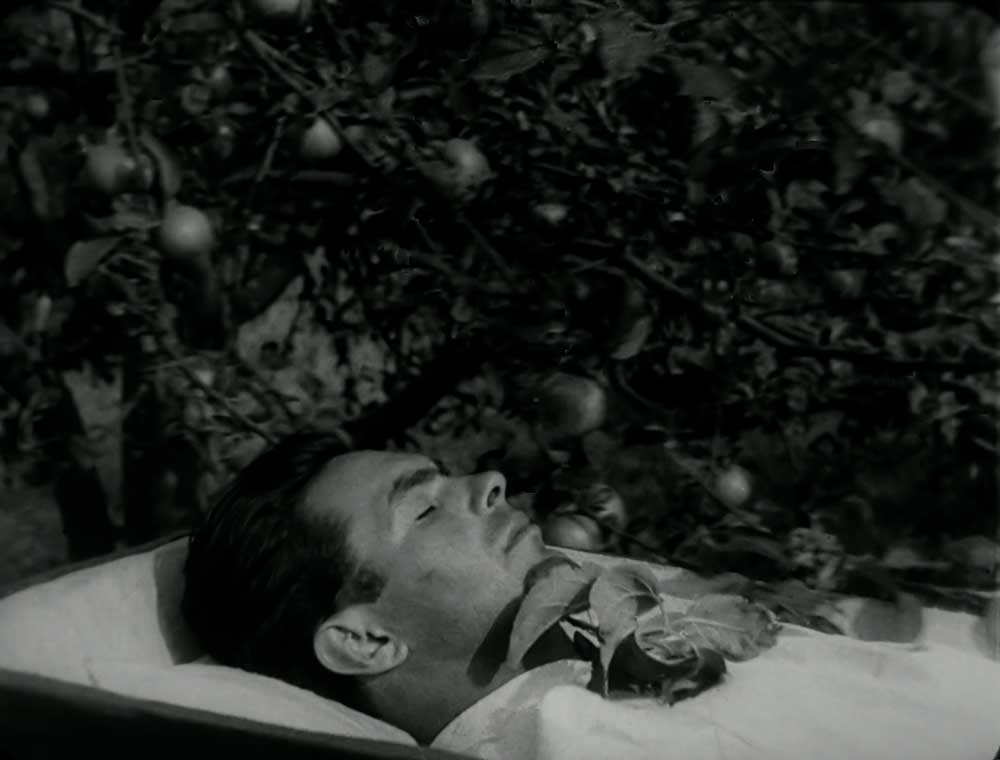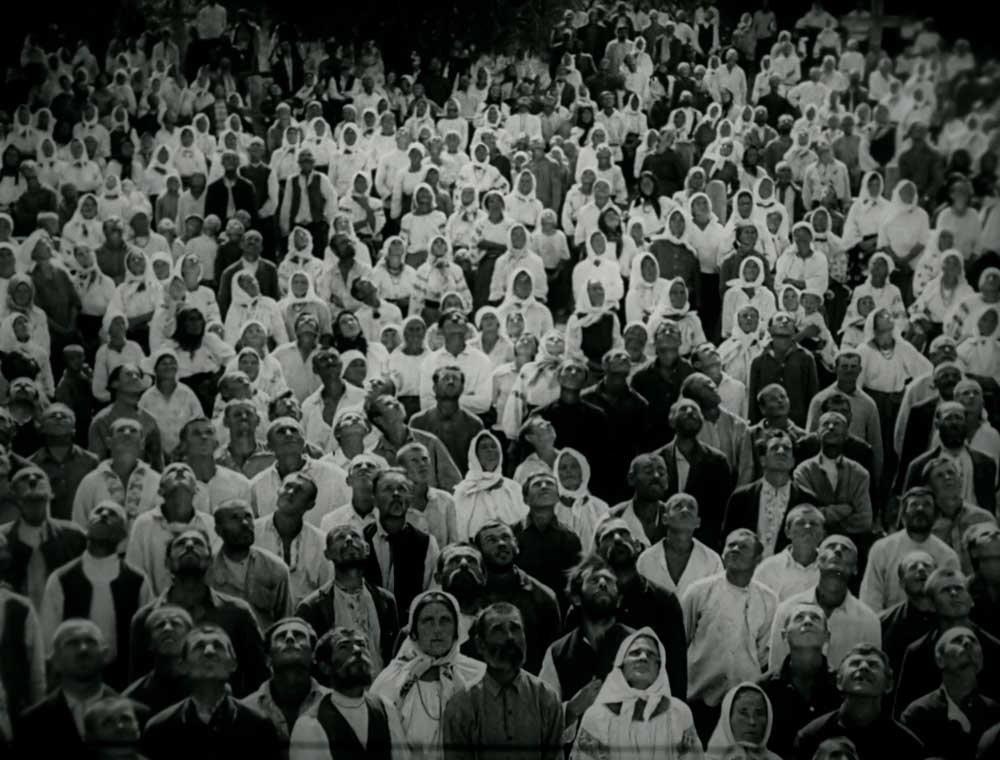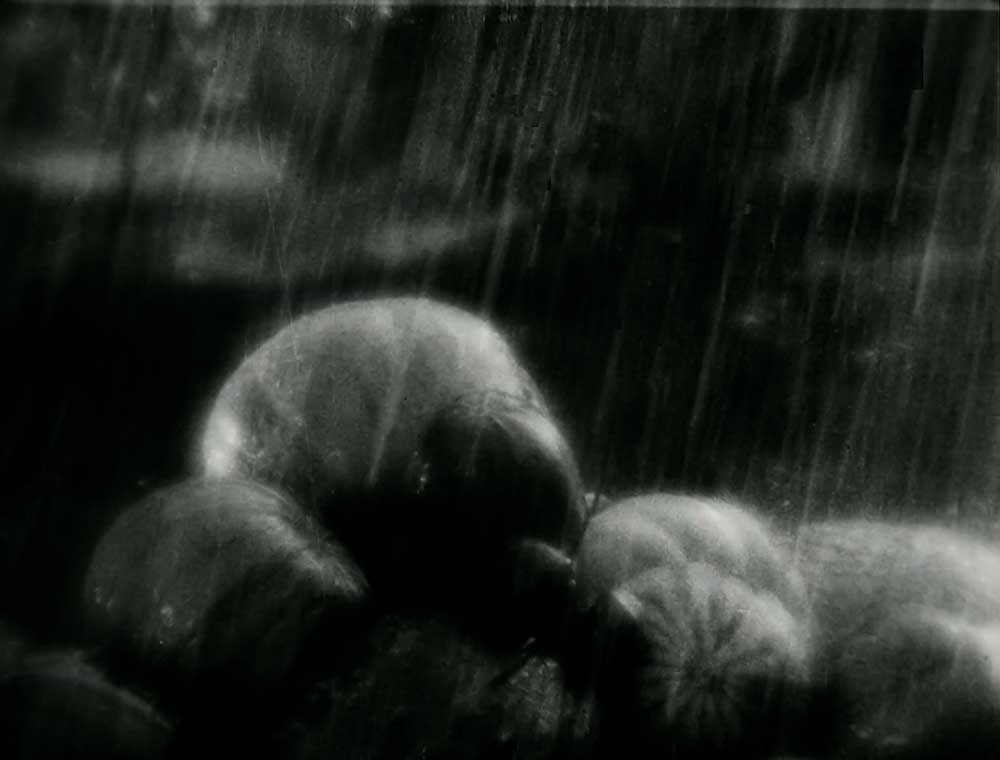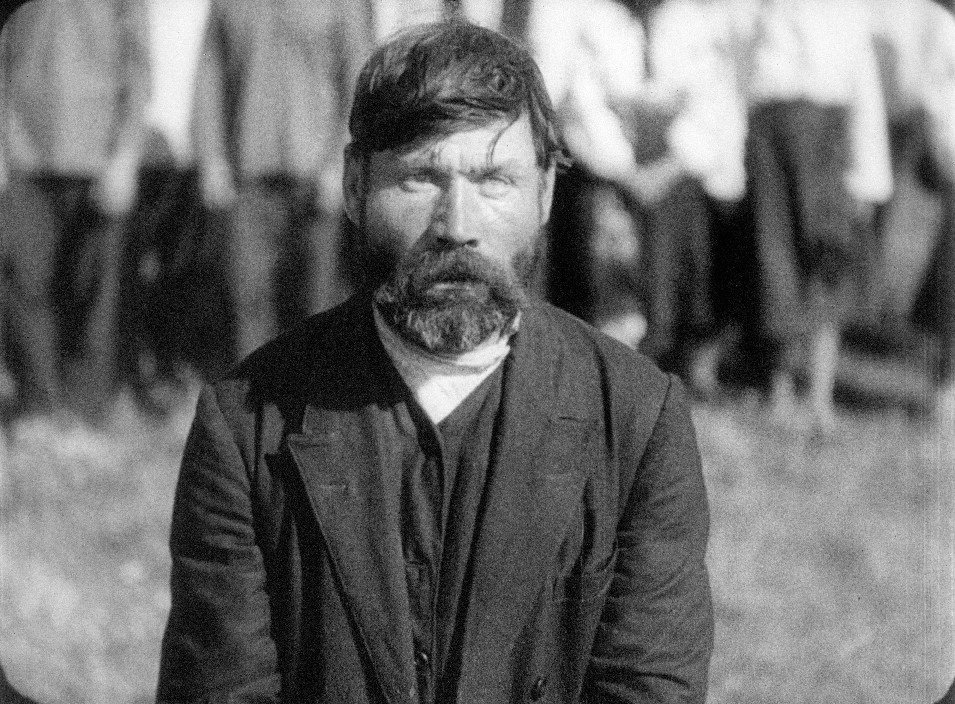
Earth / Zemlia
1930
Ukrainian SSR,
VUFKU
79 min
Oleksandr Dovzhenko
Oleksandr Dovzhenko
Danylo Demutskyi
Semen Svashenko, Stepan Shkurat, Yuliia Solntseva, Elena Maksimova, Vladimir Mikhailov, Mykola Nademskyi, Petro Masokha
A poetic film narrative portraying the implementation of the policy of collectivization in Ukraine in the late 1920s, the creation of the first collective farms, and the animosity between societal classes.
Earth is the most well-known Ukrainian film, recognized as a masterpiece of world cinema. This avant-garde film — revered in Ukraine after the death of its director, Oleksandr Dovzhenko, and banned only nine days after its release in the cinemas — inspired countless controversial interpretations. Replete with lyric pantheism and utopian exaltation, this film comprehensively demonstrated the uncertainty of the Ukrainian civilizational choice of the 1920s that culminated in tragic collectivization.
Oleksandr Dovzhenko was perhaps the most brilliant, and simultaneously, most controversial figure in Ukrainian culture of the Soviet period. In his creative work he conceived a political and cultural project of Ukraine that was far from dogmatic communism; in this (in a sense avant-garde) project, he paradoxically combined Futurism, Traditionalism, Utopianism and Conservatism. Dovzhenko’s ability to think mythologically, timelessly, all the while embracing entire historical epochs and associating them with his nation, makes him a figure of truly heroic stature.
Earth is a cultural phenomenon in which the quintessence of the Ukrainian spirit is concentrated together with universal meanings of human existence. Images from the film have become integral components in the lexicon of world cinematic art and have acquired symbolic status in the media system of our country.
